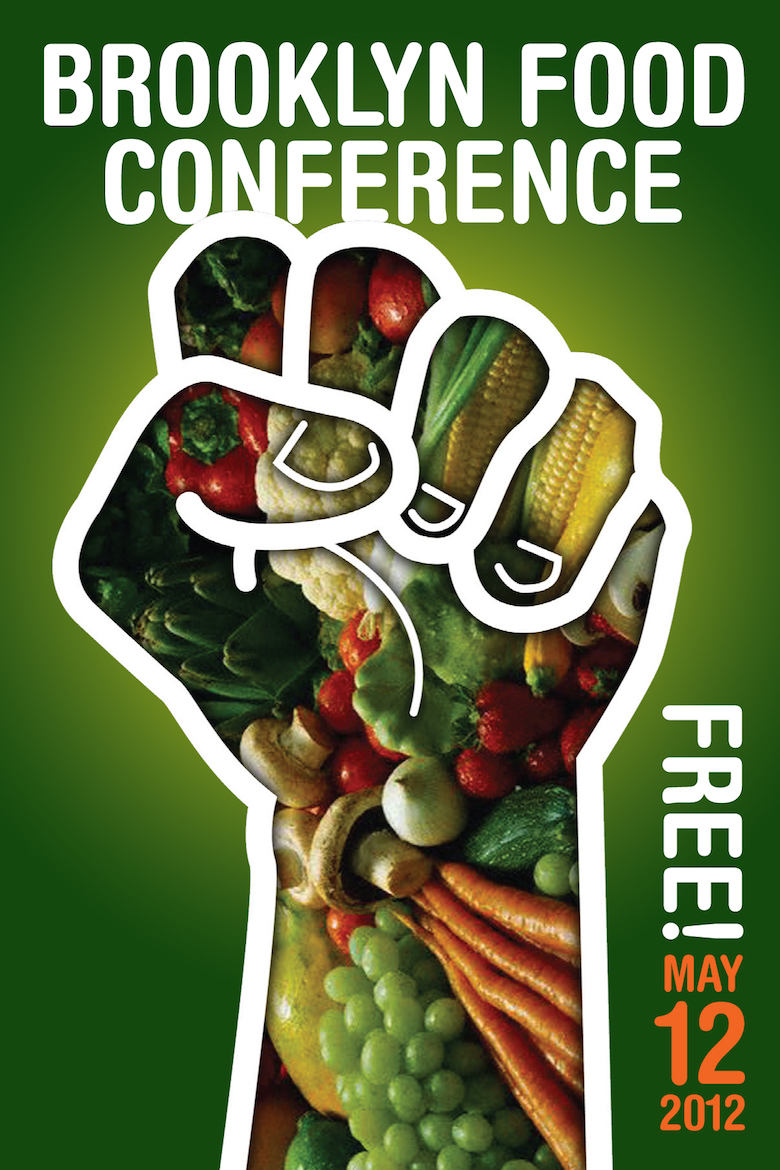
If you went to the first Brooklyn Food Conference three years ago, you know two things about the second one, coming up on Saturday, May 12: It will be enormous, and it will be free.
If you didn’t make it last time, be advised: This is not your usual foodie fest. Though there will be great eats, (under-$10 lunches from some of New York’s best caterers), this conference isn’t about sake tastings, cacao comparisons or kombucha care. Instead it’s about justice, politics and economics. After all, the conference sprang out of the Park Slope Food Co-op.
Originally a project of one of the co-op’s innumerable member committees, the coalition behind the conference has expanded far beyond the lefty grocer. But the co-op still backs the coalition, granting it that most valuable of currencies: work slot credit. “We want to change food policy,” says coalition general organizer Nancy Romer bluntly. And the meeting just might. None other than City Council chair and all-but-announced mayoral candidate Christine Quinn spent five hours at the inaugural meeting of the minds. As did lots—and lots—of her constituents. That’s why this conference is being held at Brooklyn Tech, the city’s biggest high school.
Organizers expect plenty more pols to show up, and want them to meet 5,000 citizens who are determined to overhaul the food system with ecology, public health and social justice in mind. Expect a crowd full of CSA members, food stamp clients, rooftop farmers, cashiers, breastfeeding advocates, dreadlocks, turnip tattoos and a heaping helping of Occupy-style organizing. Food activists “have long been the 99 percent,” Romer says.
So sessions will cover fracking, school lunch reform, tomato pickers’ wages and food sovereignty. “Food is an issue that can bring young and old, the formerly incarcerated, the less affluent, the more affluent, Republicans and Democrats all to the same table,” says conference organizer Jesse Alter. “It’s an issue that can really empower the community.”
But if radical politics aren’t your thing, come anyway. No, you don’t have to show a Brooklyn address to get in. And yes, it’s family friendly: There’ll be music, art shows, dozens of kids’ activities and a youth program designed by teenagers for teenagers. And the food hall will be packed with local, sustainable producers and the nonprofits that foster them. “We don’t have to depend on multinationals and agribusiness,” says Romer. “We can create our own system.”
It’s clear why the conference will be free: to open it up beyond the usual players (though they—and this magazine, a session host and proud conference sponsor—will be there, for sure). But how can Romer and Alter put on a 5,000-person conference without charging admission? “We’ve been fund-raising our little tushies off,” Romer says. If you want to get involved (Alter estimates he’ll need a few hundred volunteers over the conference weekend), e-mail him at info@bkfoodconference.org.



